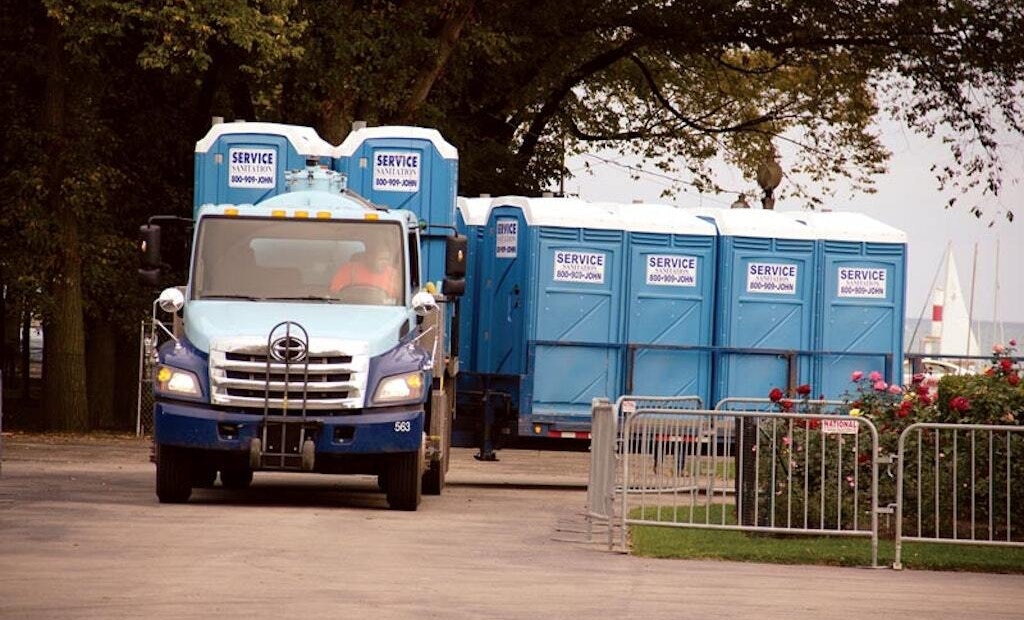Interested in Portable Sanitation?
Get Portable Sanitation articles, news and videos right in your inbox! Sign up now.
Portable Sanitation + Get AlertsA few summers ago my younger brother called me midmorning on a weekday. Being that summer is northern Wisconsin’s busy season, I knew something was up. He shakenly recounted that he’d been in an accident in his work truck. He was fine, but needed to vent.
He admitted to texting while driving and that he knew it wasn’t right, but his point of contention was the expectation of constant communication while working. He couldn’t keep up with the need to constantly answer calls and text messages from the office and drive; no one can. No one was hurt in the accident, but it kicked off a much-needed discussion about the expectations placed on drivers.
April is Distracted Driving Awareness Month: As pumpers and portable restroom operators, you’re aware of the hazards of distracted driving. You may already have dashcams, route tracking and GPS software, stellar insurance, and driver training and incentive programs. But when was the last time you looked at your habits, as a boss and/or as a business owner? Or the habits of your office staff and expectations placed on your drivers?
Those expectations translate to driving distractions. Your route drivers are operating hundreds of thousands of dollars of your equipment up and down the road every day; you want to keep them and your equipment safe. Consider these management strategies to tamp down on distracted driving.
Clarify expectations
Review state and local cellphone and distracted driving laws and enforce them accordingly. If you have a cellphone policy, make sure it’s clear, often communicated and openly posted. Consider that the policy cover all technology in the truck. If you text a driver, you don’t expect them to respond while driving; ditto to a message from dispatch via gps or routing software.
Don’t stop at the don’ts. Model good behavior and be sure to outline the proper procedure for answering calls and messages while on the road. Spell out what “responding in a timely manner” means to you and make sure employees follow your lead.
Filter and direct the flow of information
It may not seem like a big deal to pick up the phone and call a driver while they’re out on route. How many other people in the office feel they have the power to do the same? A call from the boss is one thing, but calls from the boss, shift supervisor, office manager and co-workers are all a bit much on top of dispatch updates.
Phone trees and hierarchy flowcharts used to be big in workplaces for a reason; they direct the flow of information and prevent bottlenecking and single-point information dumping.
Reconsider this tool to filter and direct the flow of information to drivers. Who gets to directly communicate with drivers out on the road? What information is of most importance? Set thresholds and expectations for communicating with drivers, and clearly communicate them to staff. Route drivers should not require a customer service agent riding shotgun.
Know your liability
The National Safety Council’s white paper Employer Liability and the Case for Comprehensive Cell Phone Policies provides an eye-opening look at case law holding employers liable for employee crashes involving cellphone use. These crashes can be costlier than you may have anticipated. Contact your auto insurance agent and go over your policy’s fine print. There may be an exemption in coverage for at-fault crashes involving cellphones/distracted driving, or an incentive for your company to have an active and enforceable cellphone policy.
In the event of a distracted driving accident, you can remain cool, calm and collected, or not. The difference comes down to preparation and application, both in the truck and in the office. Take a moment to go over driver safety with all your employees this month, and stay safe out there.






